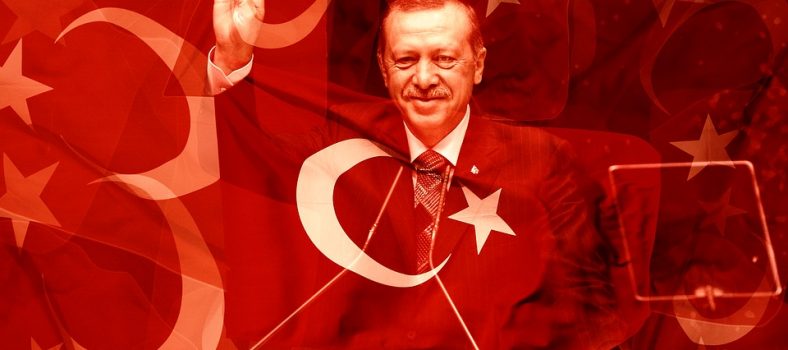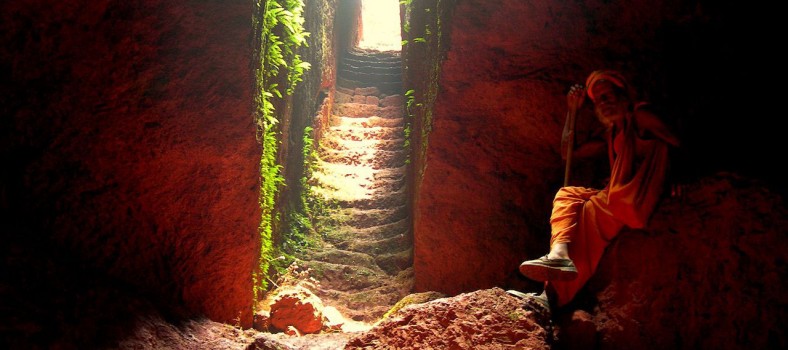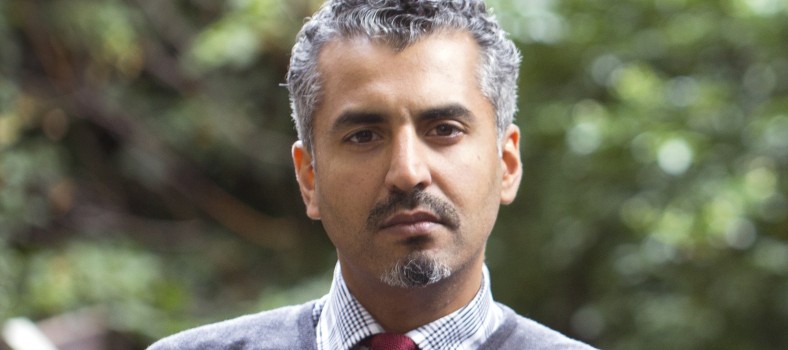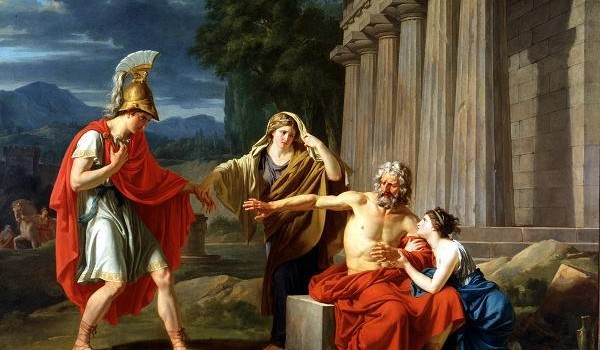Reading Radical: Initial Reactions
I usually prefer reserving judgment on any piece of writing until I’ve completed it. Nonetheless, Maajid Nawaz’s captivating book, Radical, has so far stoked so many memories and sentiments in me that I feel an almost urgent need to commit some of these thoughts to writing, if only to allow me to be able to concentrate on other things today.
Throughout his introduction, I found myself not only identifying uncannily with his some of his accounts, but actually calling to mind how some of the very influences that impacted him also impacted me. While they drove him towards involvement in Hizbut Tahrir, they drove me towards Saudi-styled Salafism.
Being an African American and the son of former NOI members, the impact that figures like Malcolm X and the overall civil rights movement had on me personally is immense. In many ways, I don’t feel like these things impacted me, I feel like they are a part of me. The fact that this struggle was portrayed in such trendy fashion through early 90s hip-hop groups—making being black and Muslim something of a cool thing to be—also undoubtedly affected me.
As for some other uncanny similarities, my father—an African American convert to Islam—also spent a great deal of time working in Libya, making me aware of the politics of that country from a young age. Though my father passed away when I was quite young, of the things I recall in his personal collection of items, as I would snoop through them as a curious youngster, was a copy of Muammar Gaddafi’s Green Book. Even as I made my first trips to the Middle East later in life, I always called to mind how that foreign culture seemed to have captivated my dad and contributed to the environment in which I was raised.
Comically, I also had a very similar experience with the cafeteria lunch lady as did Maajid. Rather than sausages, it was a serving of pork chops that I was asked to eat after having left my lunch on the school bus. Though I looked and talked like every other African Amercan kid in the predominantly white school, one thing that set me apart was the fact that I knew I could not eat pork. It was out of the question. When the teacher and lunch lady insisted that “A-llah” (they pronounced the ‘a’ as the short vowel sound in the word apple) was not cruel and wouldn’t want me to starve, I could not even fathom swallowing a morsel of pork. Though I was worried about the reaction I’d receive from my mom for carelessly forgetting my lunch on the bus, when the school called to tell her I was refusing to eat, I received nothing but praise for my resolve. The story is one of those things that stuck with me.
Most importantly, though, I recall that heightened sense of urgency for a global Islamic response to the many issues facing the Muslim world in the 90s. Maajid rightfully makes the important distinction between 3 competing forms of Islamic expression at that time: Islamism, Salafism, and Jihadism.
As a teenager, I watched the very same videos of atrocities in Bosnia and Algeria that Maajid described and remember well the narrative of the globally oppressed ummah—Islamic brotherhood. I personally knew and was actively recruited by Jihadists, some of whom were veterans of the Afghan-Soviet war who had gone on to fight in places like Bosnia and Kashmir. Exactly as Maajid describes, I recall their huge beards and epic accounts of the struggle fi-sabeelillah—in the path of Allah. “The brothers need you there, akhi!” they would tell us with the full charisma and character of harden warriors. They would tell us stories of how the birds would signal enemy advancements to them and how the brothers who were killed died with huge smiles on their faces.
I still feel a bit wistful—and frightened—as I remember their first hand accounts and how strongly I had considered joining them. One of the brothers I knew, Jibreel, who was a black convert from a local university, did join them. Through Pakistan, he went on to Kashmir to fight along side the Muslim Mujahideen against Hindu Indian forces. Within a few months, we received word that he had been “martyred.” He had gotten his wish and that struggle became a very real thing for me.
The Islamists, represented by HT, were another group with a strong presence. Their appeal was quite compelling from a rhetorical standpoint. In fact, one of the larger mosques in my area was a stronghold of HT support, with the son of the Shaikh actively recruiting new members from among the local Muslim youth and students.
It was actually an exchange between this HT supporter and a local salafist that caused me to firmly adopt Salafist, as opposed to Hizbi, ideology.
The HT recruiter had set up a book stall outside of the mosque one Friday and was encouraging worshippers to stop by for a chat. With me being a teenager struggling with how to balance my Muslim identity with my black American one, I began to listen to what he had to say. He was going on with the familiar rhetoric about the need for a khilaafah and how 1924 was the most important year to remember in modern hostory when the Salafist brother openly confronted him and called him a deviant and a mubtadi’—an innovator.
The two engaged in a heated exchange and the HT representative said, “How can you call us deviant when we are calling to the first thing the companions of the Messenger of Allah did after his death: forming a khilaafah!”
The Salafist brother’s next quip was the thing that cemented it for me. He said, “Because you are forgetting what the Messenger spent his entire life calling to: Tawheed! Do you think Allah will give us the Khilaafah when we have Muslims out here making open shirk (dedicating acts of worship to other than Allah.)!?* Allah PROMISES you the khilaafah if you oppose shirk, but you deviants are putting the cart before the horse.”
(*Salafist, or Wahabists, consider a great deal of practices prevalent in the Muslim world to be shirk and akin to idolatry. The veneration of saints, the use of charms and talismans, and performing worship at grave sites—all common things in parts of the Muslim world—were considered blasphemous by the salafis.)
He went on to do what I loved most about the Salafists, he backed up his claims by quoting directly from the Qur’an and ahadith. He quoted Surah 24 verse 55 in Arabic and from memory: “Allah promises those of you who believe and do righteous deeds that he will give them Khilaafah in the land!” But, he said, there is a condition: “They must worship me and not commit any shirk.”
I felt as though his argument had more of a sound basis than the HT strategy of establishing a Khilafah through overthrow of governments in Muslim majority nations. Further, he had a demonstrated example of how Allah had given power and wealth to a country that was founded upon opposition to shirk: Saudi Arabia.
I began to empathize with Salafism, even if I was not at the time fully committed to everything that entailed. With time though, and with the influence of close Salafist brothers with whom I would become more involved, I would give up music, keep my trousers short, and grow a full beard. Eventually, after a period of wavering back and forth between the ultra religious salafists, college life and aspirations, and that part of me that just wanted to enjoy the music, cars, and girls that my other friends were enjoying, I immersed myself fully into that world. I attended conferences across the East Coast featuring known Salafist preachers and Saudi scholars and read their books. I saw that movement as more sincere and less sensational with its foundations firmly set in traditional Islamic literature.
I became convinced that the call to tawheed—to the sole worship of Allah alone, was the only way to ensure Allah’s victory for the Muslims of the world. I opposed Hizbut-Tahrir with a passion and, ironically now I suppose, I would have hated the man that Maajid became with a fervor I’m sure he is familiar with. I warned my less religious Muslim friends about the dangers of adopting Hizbi ideology.
After befriending a visiting Saudi Scholar who was in town for treatment and attending a summer seminar from the Islamic University of Madinah, I made up my mind that “seeking Islamic knowledge” was what I wanted to do.
The period that followed at the Islamic University in Madinah is another distinct phase with more detail than I can go into right now. The experience of learning Arabic, memorizing the Qur’an and studying ahadith in that city is what solidified for me the idea that the Salafist interpretation of Islam was the truest and most original form of the religion. Political Islamism, Jihadism, and liberal modernist movements were so clearly reactionary and innovative in nature and lacked the religious authenticity I sought. Ironically, in retrospect, this solidification is what forced my shift away from Islam all together as I struggled to square all the circles I found in Islamic sources and doubted the applicability of Salafist understandings in the wider Western Muslim experience. I would not, however, lose my faith in Islam till years later.
In any event, this post was never really meant to be about me. These memories just came rushing back to me so vividly as I reached the halfway point of Maajid’s book and I needed to share them. If you have not purchased Radical, I strongly suggest that you do. It is a brilliant, raw, and honest insight into the causes, realities, and results of Islamist thinking. I eagerly look forward to completing it.




